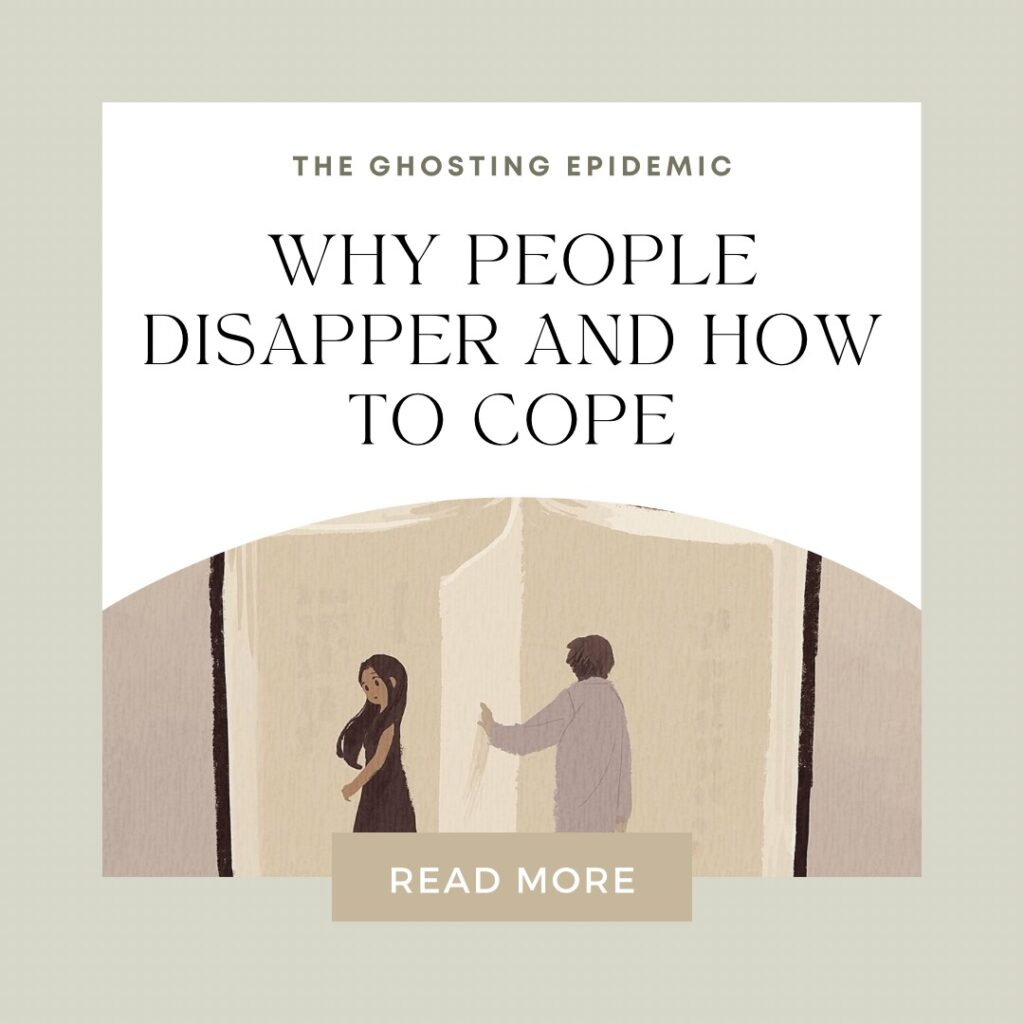The Ghosting Epidemic: Why People Disappear and How to Cope.
In today’s digital age, dating has become a complex and often confusing landscape. With the rise
of dating apps and social media, it’s easier than ever to connect with others. However, this
increased connectivity has also led to a disturbing trend: ghosting.
Ghosting, the phenomenon of suddenly and without explanation ceasing communication with
someone, has become a pervasive issue in modern dating. It’s a painful and frustrating
experience that can leave individuals feeling confused, hurt, and unsure of what they did wrong
Why Do People Ghost?
Ghosting can be a complex issue, but some common reasons include:
1. Fear of confrontation or awkward conversations: Ending a relationship can be difficult, and
some people may avoid confrontation by simply disappearing.
2. Overwhelmed or unsure about their feelings: Individuals may feel uncertain about their
emotions or overwhelmed by the relationship’s intensity.
3. Lack of emotional maturity or communication skills: Some people may struggle with
expressing their feelings or resolving conflicts in a healthy manner.
4. Fear of intimacy or commitment: Ghosting can be a way to avoid deeper emotional
connection or commitment.
5. Busy or distracted with other priorities: Life can get busy, and some individuals may prioritize
other aspects of their life over relationships.
The Emotional Impact of Ghosting
Being ghosted can have significant emotional consequences:
1. Confusion and uncertainty: You may wonder what you did wrong or whether the other person
is okay.
2. Rejection and low self-worth: Ghosting can make you feel unwanted, unloved, or unworthy.
3. Anxiety and stress: The uncertainty and lack of closure can lead to increased anxiety and
stress.
4. Difficulty trusting others: Ghosting can make it challenging to trust others in future
relationships.
5. Emotional numbness or detachment: You may feel disconnected from your emotions or
struggle to form close relationships.
Coping Mechanism
If you’ve been ghosted, remember:
1. Allow yourself to feel your emotions: Process your feelings, whether it's sadness, anger, or
frustration.
2. Practice self-care and self-compassion: Take care of your physical and emotional well-being.
3. Seek support from friends, family, or therapy: Talk to someone you trust about your
experience.
4. Reflect on the relationship and identify red flags: Consider whether there were signs of
trouble in the relationship.
5. Focus on personal growth and development: Use this experience as an opportunity for self-
improvement.
In conclusion, ghosting is a painful reality of modern dating, leaving emotional scars and
uncertainty in its wake. By understanding the reasons behind ghosting and acknowledging its
impact, we can begin to break the cycle. Remember that ghosting is not a reflection of your
worth; it’s often a sign of someone else’s emotional unavailability.
As we navigate the complex world of relationships, prioritize open communication, emotional
intimacy, and mutual respect. Don’t be afraid to seek help, support, and guidance when needed.
